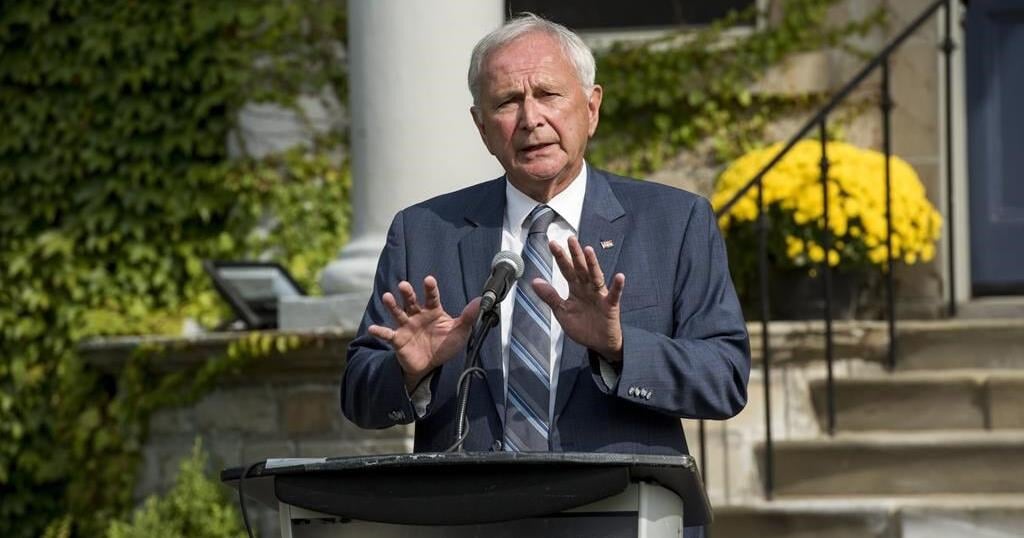FREDERICTON – Improving health care comes through better management, not spending more money, according to New Brunswick’s Progressive Conservative leader, who says he’ll bring “business acumen” to delivering services if he’s re-elected to a third term as premier.
Speaking at an event organized by the Fredericton Chamber of Commerce and the University of New Brunswick, Blaine Higgs said on Monday his government will analyze the strengths and weaknesses of the health network and “develop a model that works.”
“How do we manage to deliver better services through better management practices, other than more tax dollars? That’s what we’re doing in health care …. the whole purpose was bringing a business acumen to deliver health care,” he said.
But less than two weeks from the provincial election, Higgs and his party are still light on details regarding their health-care proposals, promising to release their platform next week.
Meanwhile, the health network continues to struggle. Wait times in emergency rooms are long, and patients regularly endure hours — sometimes as long as 12 hours — inside ambulances parked outside hospitals before being admitted inside. As well, the Liberals often cite the New Brunswick Health Council, which says 180,000 residents don’t have access to a family doctor; Higgs disputes the numbers.
In his discussion on Monday with Morgan Peters, chief executive officer of the Fredericton Chamber of Commerce, the Tory leader listed his government’s health-care achievements, which he said were an increase in virtual care and the opening of collaborative care clinics.
In an Aug. 30 fundraising email, the Progressive Conservatives boasted there were 49 collaborative care clinics “currently operating” and that eight more are opening soon, the majority of which after the election.
The Liberals have promised to create 30 community clinics across the province at a cost of $115.2 million over four years. But the Tories say that eight of the 30 clinics will have opened because of their government. “The Liberal plan is to take credit for work that our (Tory) government has already done!” the email said.
Holt, however, has said that the Progressive Conservatives have opened some health centres, “some of which have a single nurse in them, some of which have a single doctor — none of which are modelled on team-based collaborative care.”
For their part, the Greens have promised to invest $380 million annually to fix the primary health-care system.
On the campaign trail Tuesday, the Holt campaign announced a Liberal government would “immediately” eliminate the “Higgs gas tax,” which is a formula used by the Energy and Utilities Board to calculate how much of the cost of federal clean fuel regulations can be passed on to consumers. Ending the so-called “carbon adjuster,” she said, would bring down gas prices by about four cents per litre.
”Higgs chose to charge New Brunswickers more for gas, rather than oil and gas refineries,” Holt said in a statement.
“The cost of power, rent, and gas has increased significantly under Higgs, and New Brunswickers shouldn’t have to spend money to save money while costs continue to rise.”
Green Leader David Coon said his party will provide affordable alternatives to driving, should he be elected. A Green government, he said in a news release, will establish a provincial rapid rail network, the first phase of which will connect Campbellton, Moncton, and Sackville, with daily commuter service by 2028. Subsequent phases will connect Saint John and Moncton, and Fredericton to Saint John, he promised.
This report by The Canadian Press was first published Oct. 8, 2024.

























